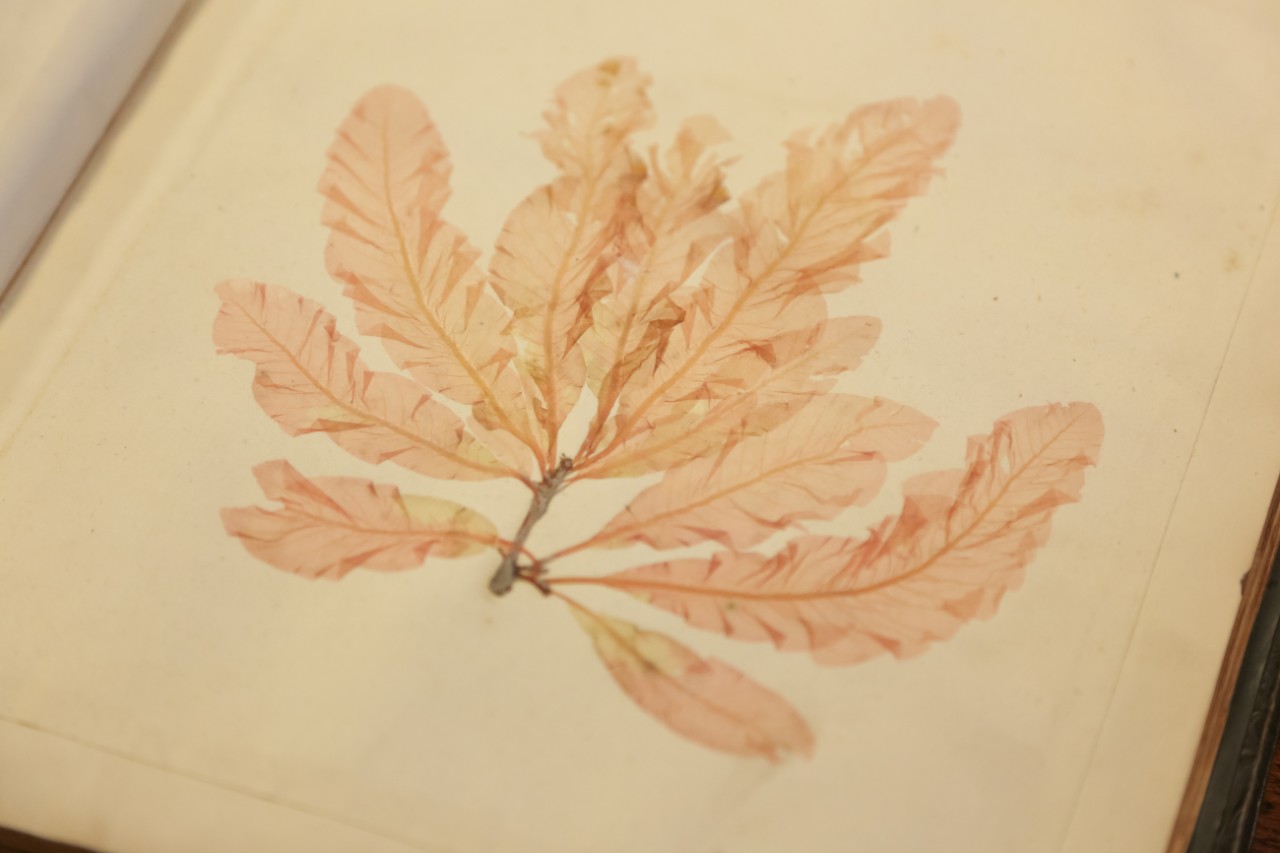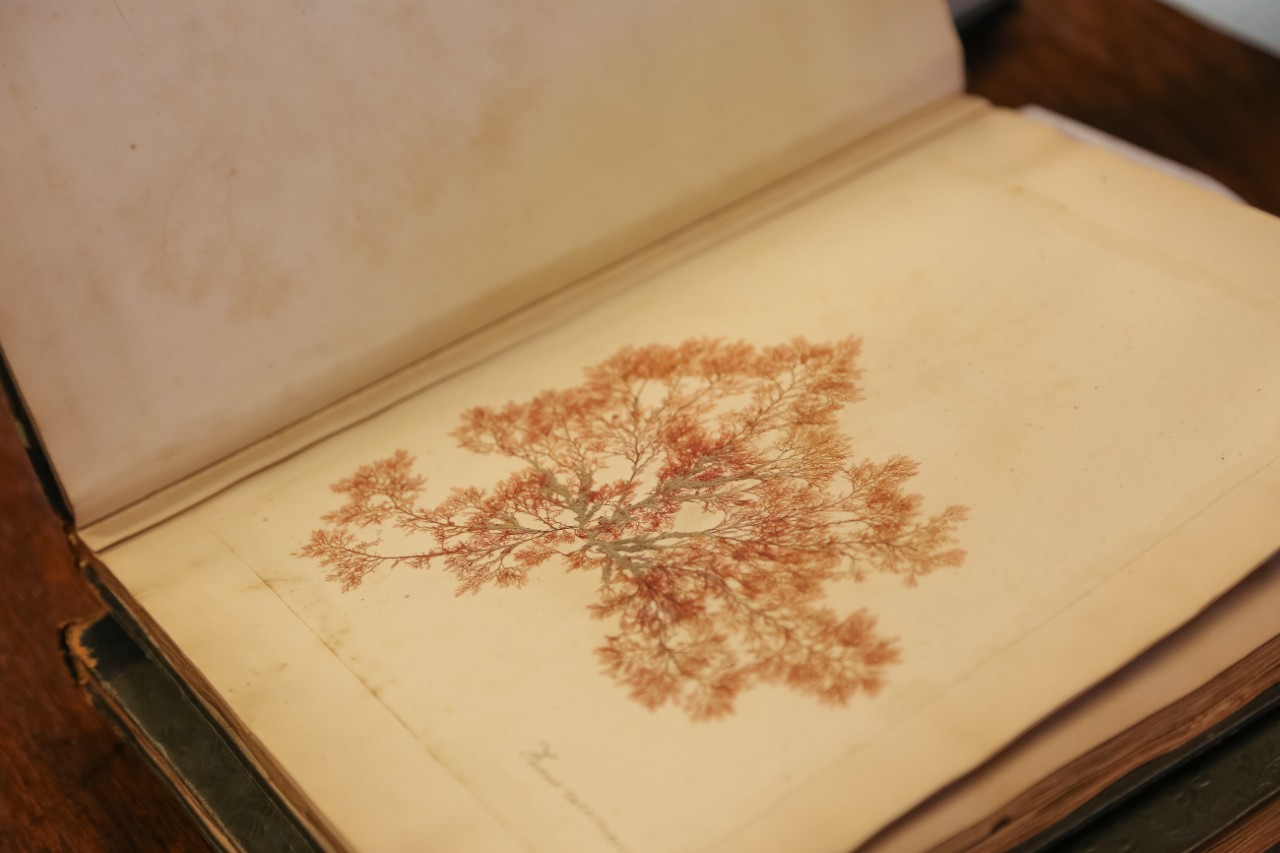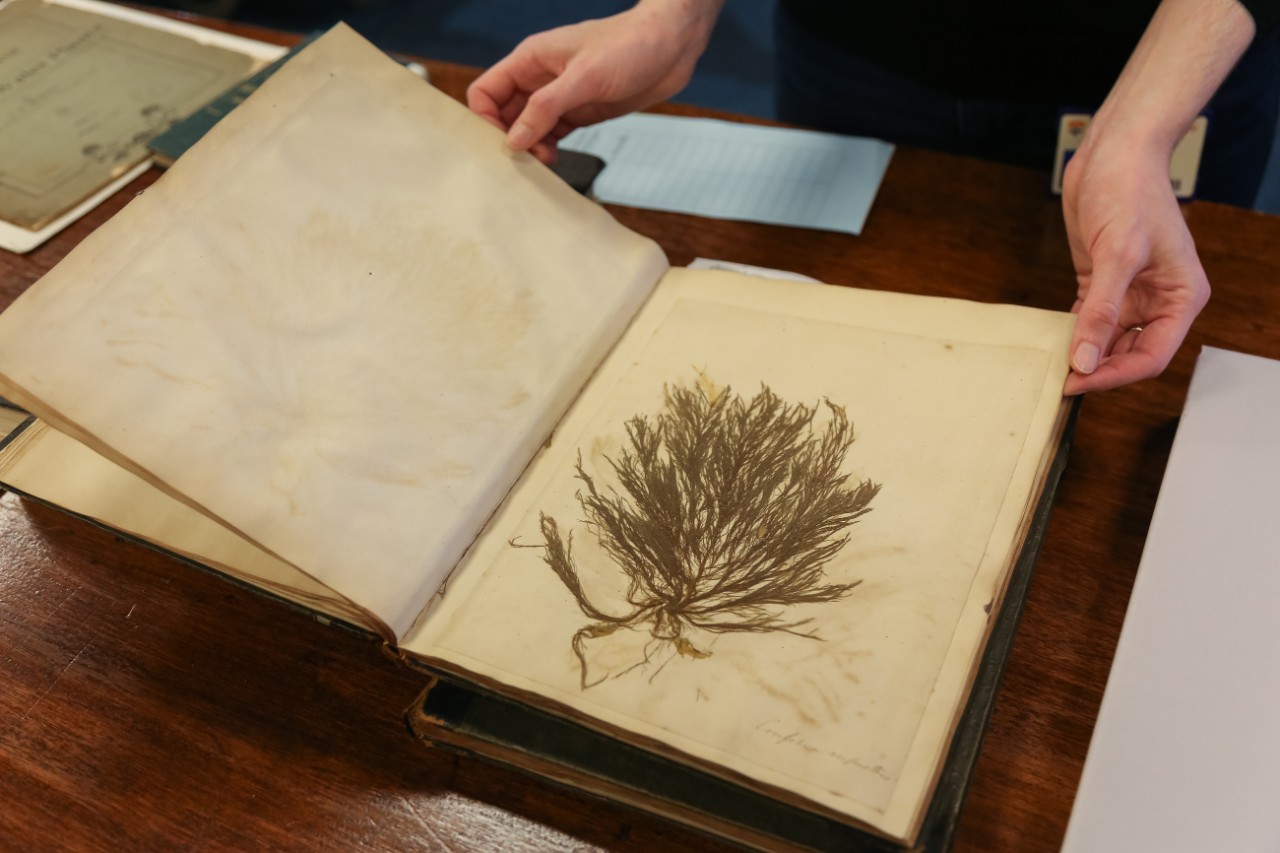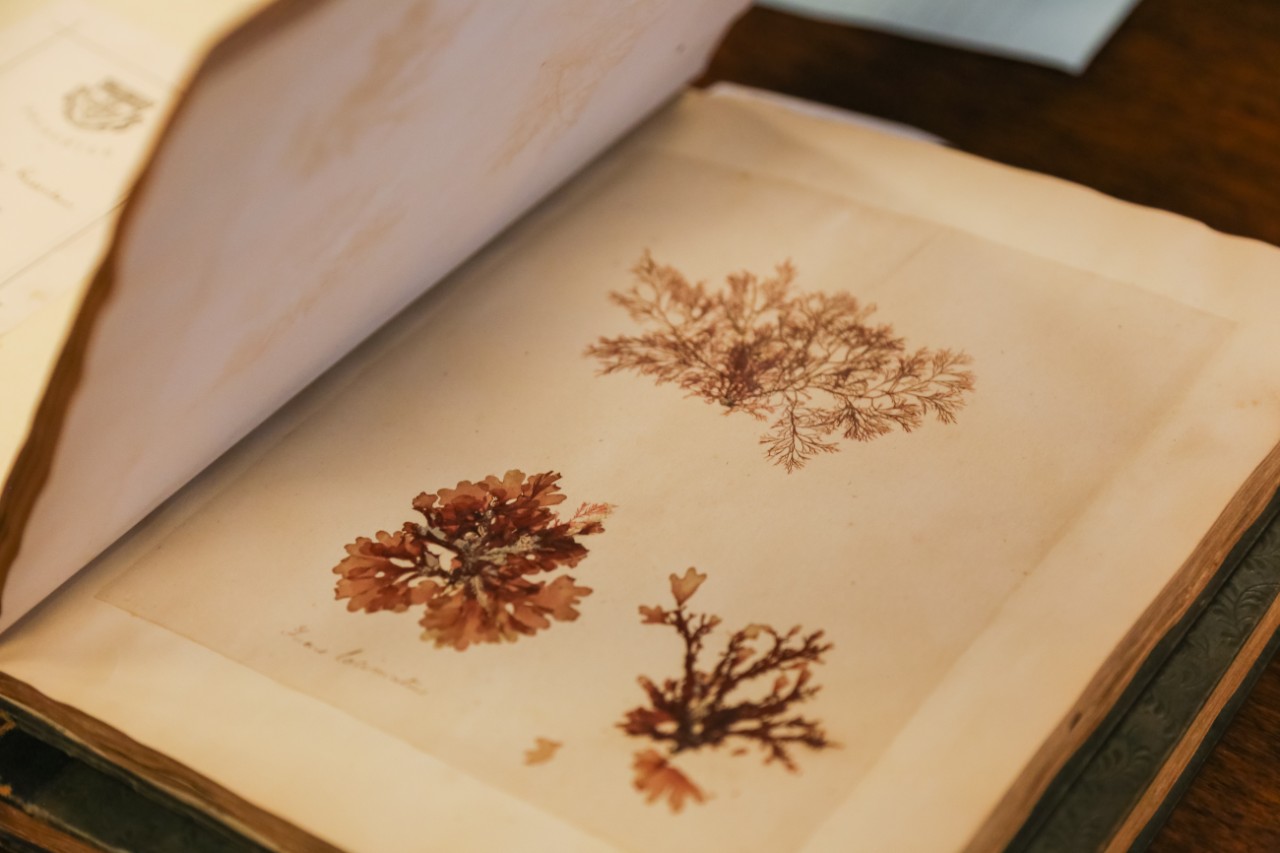Pressed Seaweed Albums

The Library's Rare Books and Special Collections hold a pair of unique albums, containing an array of pressed seaweeds. The albums, bound in green bookcloth patterned with a delicate foliage design, were presented to the Library by TS and MC Greenlaw in 1980.
Collecting and pressing seaweed like this was popular in the Victorian era, so we can assume that the albums predate 1900.
Many of the seaweed collectors were women, who would wander for hours along sandy shores, picking up specimens and placing them into pouches and jars. The best time to search was often after storms as the violent waves would dislodge seaweed from the seafloor and wash them onto nearby beaches.
Collectors would remove sand from specimens, before floating them in water to resurrect their buoyancy. A thick piece of paper was then skimmed underneath to capture the sample. The fronds could be adjusted on the page while they were still wet and some people went as far as to create elaborate scenes, known as marine paintings. The pages were then placed in a book press and if additional adhesian was needed, fish glue was used. Depending on the level of scientific interest some collectors went on to label their specimens with names, dates and places of collection.
One of the most enigmatic samples in the Library's collection is a sample of Fucus sanguineus (Delessaria sanguinea). The delicate pink fronds capture a sense of motion and almost look like a watercolour painting on the page. Seaweed samples can drift far across the ocean but Delessaria sanguinea is common to the waters around the United Kingdom, Ireland, Norway and Iceland.
Seaweed albums are rare, though there are some held by other institutions in Australia including the National Museum of Australia and Deakin University. Aside from being beautiful to look at, these albums provide an insight into seaweed diversity, citizen science, and the hobbies of women during the Victorian era.
If you're interested in researching these items, or utilising them in a class or program, please get in touch with our Rare Books and Special Collections team via email.
Our extensive range of special collections can enhance academic teaching and research, providing unique and valuable resources that enrich learning experiences and drive innovative scholarly exploration.



- 1
- 2